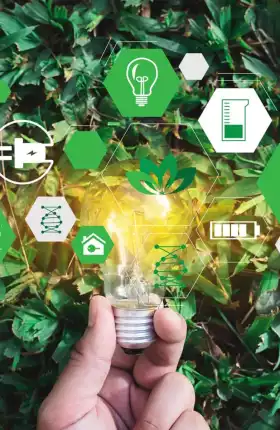When it comes to tackling climate change, individuals are ready to do their part. A recent BCG survey found that three quarters of Australians pay attention to the impact of their behaviour on climate change, and 82% say they are ready to limit their consumption to help tackle it.
But as we settle in to watch what unfolds at COP26 in Glasgow, all eyes will be on the world’s governments, and the agreements, plans and pledges that emerge. And it’s not just hope. It’s an expectation that after years of commitments and promises, governments, investors and businesses will put their money where their mouths are.
BCG recently surveyed more than 10,000 people around the world, including 1,000 in Australia, about their consumption habits and views on climate change. What emerged was a picture of a community of engaged (and concerned) consumers who laid the responsibility for tackling climate change at the feet of their government and businesses. Consumers told us they feel that large companies are responsible for climate change and that governments should lead the charge in terms of a response.
Some of the Australian survey responses should make governments and businesses pause for thought: only 41% of Australian respondents feel that large companies’ response to climate change is adequate, while only 50% feel that the Federal Government’s response is adequate.
Part of the problem is a perceived inability to act; businesses, for example, might feel ill-equipped to meet the challenges posed by climate change in terms of their business models, structures and supply chains . But another part of the problem is communication. 35% of Australian consumers feel that companies are doing only the bare minimum to protect their image in terms of tackling climate change. That is a missed opportunity; many businesses are progressing in leaps and bounds but not communicating how they are turning their commitments into action.
Our research shows that Australians are ready to play their part, but many are overwhelmed by the scale of the problem and are struggling to identify the most impactful actions they can take in their everyday lives. For example, 30% of the Australians we surveyed said they felt irritated or hopeless when they thought about climate change. They are looking towards businesses to show leadership by creating and promoting innovative solutions that will empower consumers in combating climate change. And while no one is pretending that meeting the challenge of climate change will be easy, these findings point to an opportunity for businesses and governments to turn commitment into action. Meeting sustainability goals is not only good for the environment and the community in general, but as our studies and experience show time and time again, for a business’s bottom line.
At BCG we are continuing to study these changing consumer habits and expectations. We’ll be releasing more insights about Australian consumers in the coming weeks. We know that cost is a key barrier to transitioning to more sustainable consumption patterns for many, while other obstacles include time constraints, inconvenience and a lack of alternative, ‘greener’ options: for example, 34% do not have an alternative to using a car for day-to-day transport. The sum of these challenges makes it difficult for consumers to take effective action alone, and the challenge – and opportunity to innovate – therefore lies with businesses and governments. Addressing this need for innovative solutions must be at the core of corporate strategies.
For those companies that have not yet turned their attention to how they will operate in an increasingly climate-conscious market, the clock is ticking. Consumers are ready for change. For businesses, that means planning for innovation but also improving communication on how they are addressing climate change. We’re beyond commitments and pledges. Australians have made themselves clear – they are ready to combat climate change. Businesses and governments must ride that momentum and lead the charge.





